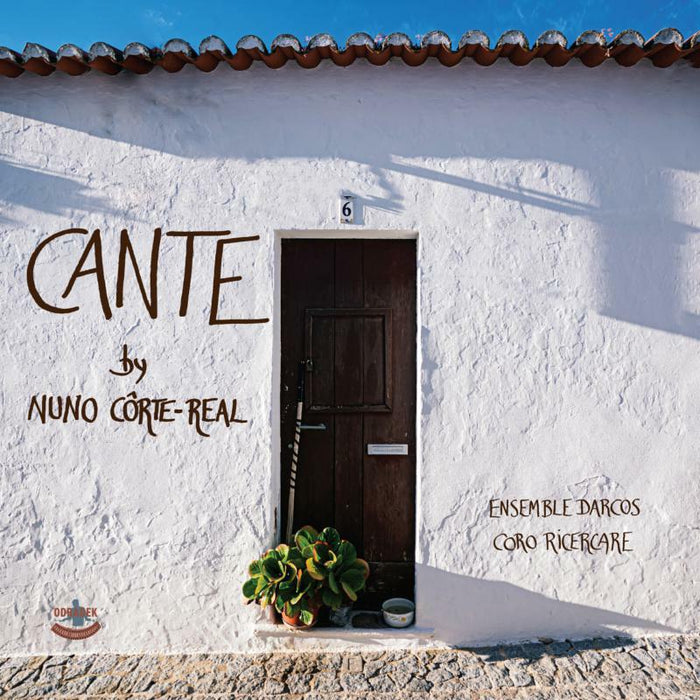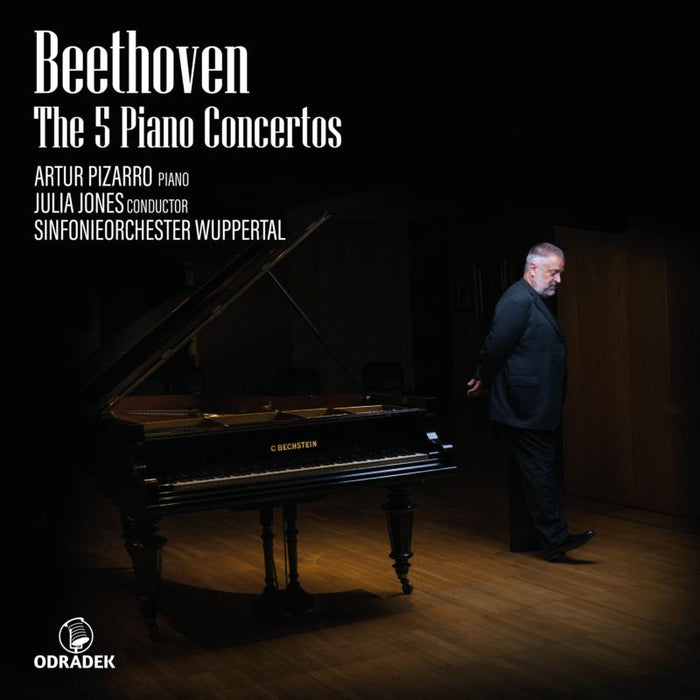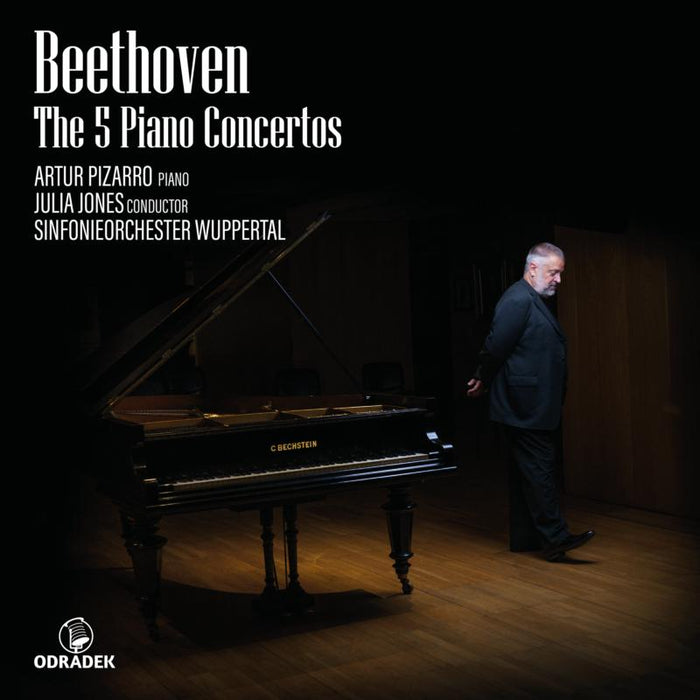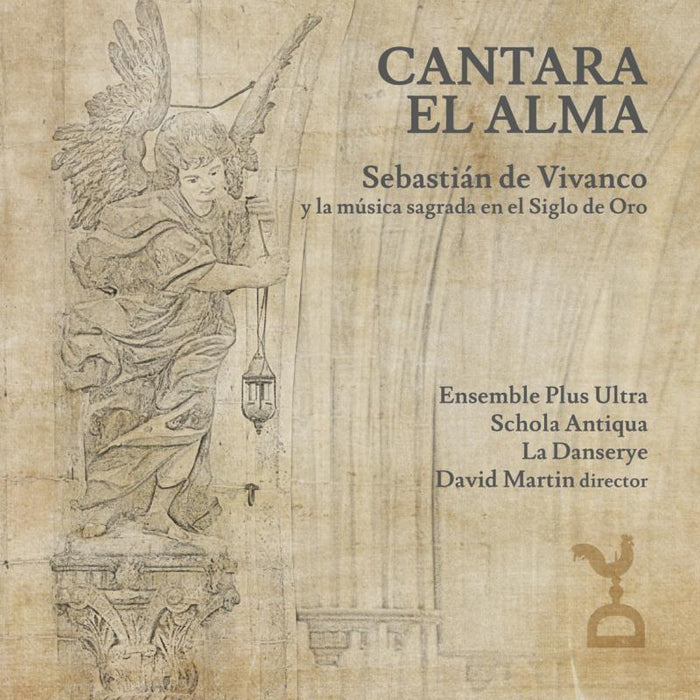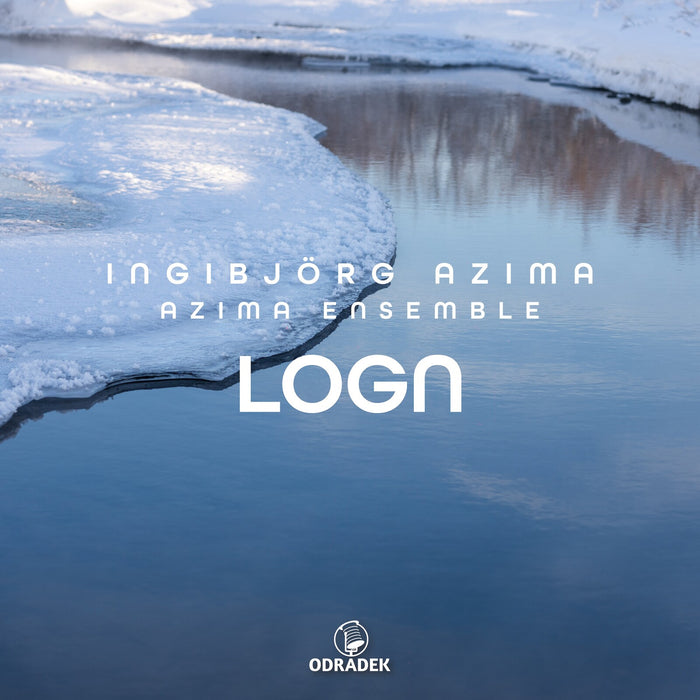Description
"Pina Napolitano is one of the finest living interpreters of the music of the Second Viennese School" (Classical Explorer). Celebrating the 150th anniversary year of Arnold Schoenberg, in the third volume of her acclaimed "Brahms the Progressive" series, pianist Pina Napolitano ventures into chamber music with renowned violinist Franco Mezzena, continuing to demonstrate the seamless continuity between the rich romanticism of Brahms and the expressive modernism of the Second Viennese School. Schoenberg's enigmatic and open-endedSatzfragment sets the stage for this journey bridging past and future. Brahms' second and third sonatas for piano and violin, composed by the shores of serene Lake Thun, teeter on a thin boundary between tranquillity and restless searching, between classical form and a concision, essentiality, and motivic and contrapuntal saturation that already prelude the Second Viennese School. Their rich and ambiguous structures sandwich the fractured expressiveness of Schoenberg'sPhantasy, the centrepiece of the album, and a work that embodies continuous thematic development within a single movement. Finally, Webern'sVier Stucketake us to a radical reinterpretation of form and technique in four brief and thrilling movements.
Napolitano and Mezzena bring dynamic interplay and a deeply shared artistic vision to these works. This is Mezzena's third album with Odradek Records, and 100th in total. He has also recorded with Brilliant Classics, Dynamic, and Luna Rossa Classic, and teaches annual violin and chamber music courses in Messina, Sacile, and Rome. Napolitano's discography is celebrated for its meticulous and profound musical conception. Napolitano is also an acclaimed translator of Russian verse, and a full professor of piano at the Trieste Conservatory, and she has taught at the conservatories of Vibo Valentia, Teramo, Bologna, and Rome.
While"Brahms the Progressive Volume 1" focussed on solo piano repertoire, "Volume 2" expanded into the realm of the concerto with Webern's sparkling, kaleidoscopic Concerto Op. 24 and Brahms' expansive, sumptuous Piano Concerto No. 2, featuring the Lithuanian National Symphony Orchestra and conductor Modestas Pitrenas. "Brahms the Progressive Volume 3" continues this journey and offers performances that are both technically impeccable and emotionally resonant. Taking its title from the essay by Schoenberg of the same name, Napolitano invites us in this series, as Schoenberg suggested, to consider Brahms, though often considered a musical "conservative", instead as the father of modernism. This crisscrossing, traversing time in two directions, looking at Brahms from the perspective of the modern Viennese, and looking at the Second Viennese School from the perspective of Brahmsian romanticism, is a hallmark of Napolitano's discography, also for example, in "Tempo e Tempi"juxtaposing Elliott Carter and Beethoven,selected as The Sunday Times 2020 'Best Contemporary Classical Album'.
Listening to these works in sequence creates a two-way context as these masters seemingly reach out to one another across time, Brahms anticipating Schoenberg and Webern, and Webern, via his teacher Schoenberg, acknowledging Brahms, the progressive. Her second album celebrating Schoenberg's 150th anniversary year, Napolitano also recently released "Kammerkonzert" with the Wiener Concert-Verein and Michael Zlabinger, with featured guests Ida Aldrian and Christoph Filler.
'Webern's 4 Pieces Op. 7 […] fluid changes of tempo [are] scrupulously judged; the hushed whispers, haunting; every small gesture an utterly absorbing world unto itself.' – BBC Music Magazine (4 stars)




